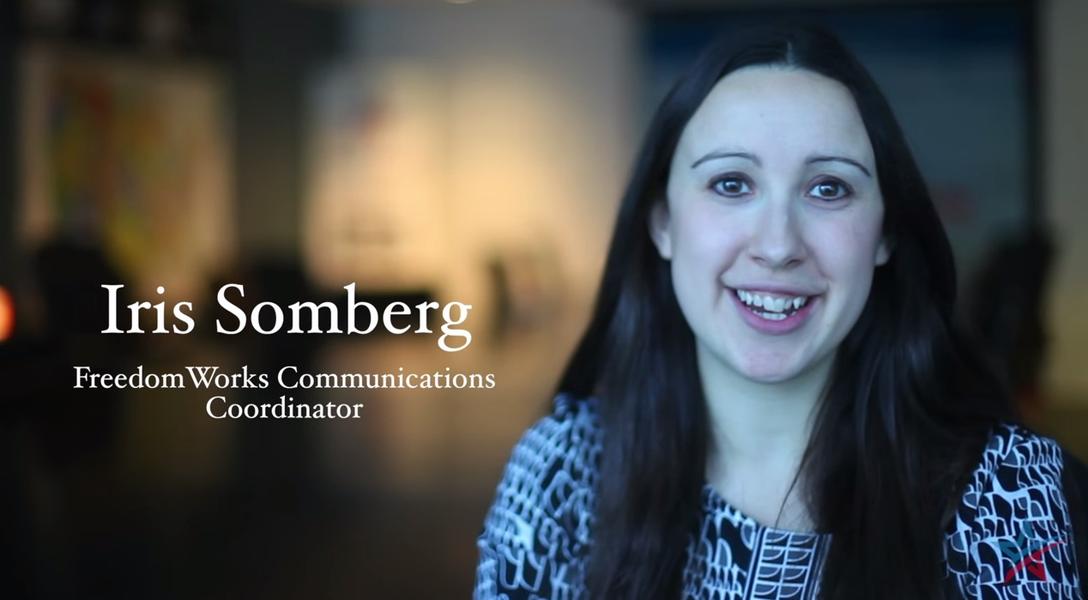Here's the conservative case against net neutrality


A free daily email with the biggest news stories of the day – and the best features from TheWeek.com
You are now subscribed
Your newsletter sign-up was successful
On Monday, President Obama urged the Federal Communications Commission to reclassify the internet as a public utility, finally allowing the FCC to enforce principles of net neutrality — the idea that all traffic on the internet must be given equal treatment.
Republicans aren't happy with the plan to treat internet service providers (ISPs) as regulated telecoms — House Speaker John Boehner (R-Ohio) said it would "destroy innovation and entrepreneurship," and Sen. Ted Cruz (R-Texas) called net neutrality "ObamaCare for the internet," because it "puts the government in charge of determining internet pricing, terms of service, and what types of products and services can be delivered, leading to fewer choices, fewer opportunities, and higher prices for consumers." Cruz got flak and unsolicited fact-checking from across the political spectrum.
The problem for conservatives is that the idea of a level playing field for the internet is wildly popular, even among conservatives and Republicans (depending on how you frame the question). Net neutrality proponents have already laid out their case in a series of entertaining and accessible videos, most memorably John Oliver's explanation on Last Week Tonight. Conservatives are starting to push back with video explainers of their own, like this one from establishment Tea Party organization FreedomWorks:
The Week
Escape your echo chamber. Get the facts behind the news, plus analysis from multiple perspectives.

Sign up for The Week's Free Newsletters
From our morning news briefing to a weekly Good News Newsletter, get the best of The Week delivered directly to your inbox.
From our morning news briefing to a weekly Good News Newsletter, get the best of The Week delivered directly to your inbox.
The short version of FreedomWork's pitch: Net neutrality "protects the internet's biggest companies" like Google and Netflix — which, unlike ISPs, back net neutrality — while hurting small content providers like a "high school blog." Time notes that the nation's largest ISP, Comcast, is spending more on lobbying (both parties) than any company except defense contractor Northrop Grumman; $107,775 of Comcast's money has gone to Boehner, more than twice the contribution to any other member of Congress.
A free daily email with the biggest news stories of the day – and the best features from TheWeek.com
Peter has worked as a news and culture writer and editor at The Week since the site's launch in 2008. He covers politics, world affairs, religion and cultural currents. His journalism career began as a copy editor at a financial newswire and has included editorial positions at The New York Times Magazine, Facts on File, and Oregon State University.
-
 Political cartoons for February 18
Political cartoons for February 18Cartoons Wednesday’s political cartoons include the DOW, human replacement, and more
-
 The best music tours to book in 2026
The best music tours to book in 2026The Week Recommends Must-see live shows to catch this year from Lily Allen to Florence + The Machine
-
 Gisèle Pelicot’s ‘extraordinarily courageous’ memoir is a ‘compelling’ read
Gisèle Pelicot’s ‘extraordinarily courageous’ memoir is a ‘compelling’ readIn the Spotlight A Hymn to Life is a ‘riveting’ account of Pelicot’s ordeal and a ‘rousing feminist manifesto’
-
 Nobody seems surprised Wagner's Prigozhin died under suspicious circumstances
Nobody seems surprised Wagner's Prigozhin died under suspicious circumstancesSpeed Read
-
 Western mountain climbers allegedly left Pakistani porter to die on K2
Western mountain climbers allegedly left Pakistani porter to die on K2Speed Read
-
 'Circular saw blades' divide controversial Rio Grande buoys installed by Texas governor
'Circular saw blades' divide controversial Rio Grande buoys installed by Texas governorSpeed Read
-
 Los Angeles city workers stage 1-day walkout over labor conditions
Los Angeles city workers stage 1-day walkout over labor conditionsSpeed Read
-
 Mega Millions jackpot climbs to an estimated $1.55 billion
Mega Millions jackpot climbs to an estimated $1.55 billionSpeed Read
-
 Bangladesh dealing with worst dengue fever outbreak on record
Bangladesh dealing with worst dengue fever outbreak on recordSpeed Read
-
 Glacial outburst flooding in Juneau destroys homes
Glacial outburst flooding in Juneau destroys homesSpeed Read
-
 Scotland seeking 'monster hunters' to search for fabled Loch Ness creature
Scotland seeking 'monster hunters' to search for fabled Loch Ness creatureSpeed Read
